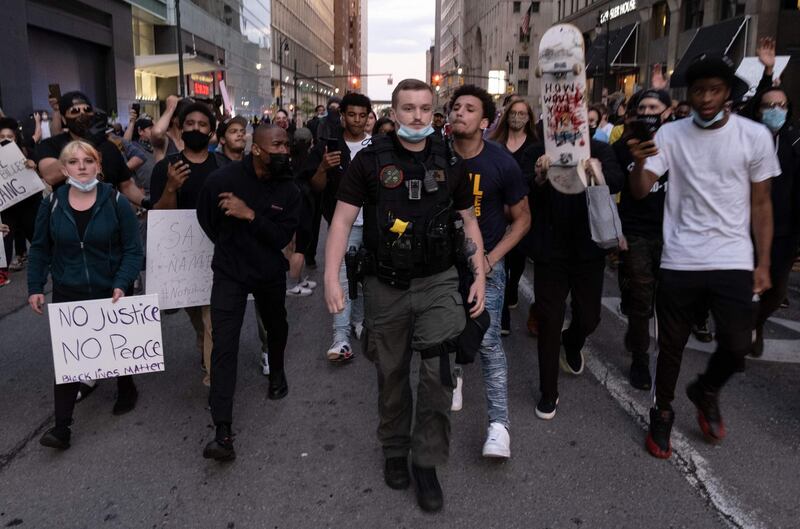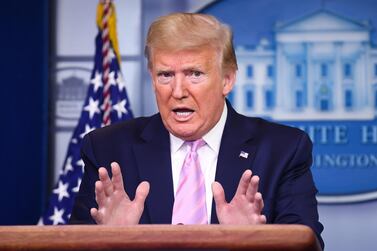For five days, Americans have risen up against the killing of George Floyd, a 46-year-old black man, by a white police officer in the city of Minneapolis while he was in custody. The tragedy was filmed by passersby and shared online for the world to see. In the video, Floyd can be seen pleading for his life as one policeman continues to choke him with his knee while others hold him down.
The brutality seen in the footage has shocked the world and, understandably, driven thousands to the streets across the US to demand justice, equality and fair treatment of minorities by law enforcement officials.
Floyd’s death has revealed deep fractures within American society, putting the spotlight on instances of police brutality against marginalised communities.
Yet it is only the latest in a series of widely reported killings of black persons in custody. Time and again, excessive force has been used against marginalised communities, sparking protests, and eventually riots, in a never-ending cycle of violence. In 2014, the fatal shooting by a white officer of 18-year-old Michael Brown, another black man, sparked protests in the city of Ferguson and served as a catalyst for the "Black Lives Matter" movement. That same year in New York, Eric Garner, yet another black person, was choked to death in police custody for selling cigarettes illegally. The officer who killed him was dismissed from the force, but not indicted. And this February, Ahmaud Arbery, an unarmed jogger, was lynched by white men. His death was also filmed and widely shared online.
In Ferguson, just as in Minneapolis, there have been reports of looting and violence by some demonstrators, while the police has, in turn, responded with force to protesters. Violence cannot be condoned, whether it is perpetrated by protesters, who are angry at the state’s inability to protect its most vulnerable people, or by police officers using excessive force on unarmed civilians. This cycle must be broken once and for all.
An investigation is under way into Arbery’s death, and the officer who killed Floyd has been arrested and charged with third-degree murder. For America to heal its wounds, justice must be served in a fair manner, and this arrest is a positive first step.
The year 2020 has brought about trials and tribulations all over the world, and particularly in the US. This is an election year, a time when politicians often entrench themselves in divisive rhetoric instead of bringing people together – a tactic President Donald Trump has already employed in light of recent events. Then, there is the coronavirus pandemic. The US has recorded nearly one-third of all Covid-19 cases and more than 105,000 deaths. That people were compelled to take to the streets instead of staying safely indoors speaks to the gravity of the situation.
All people regardless of race and social status must receive fair treatment when apprehended by police forces. No one should die for $20 in counterfeit money, or for selling cigarettes.






